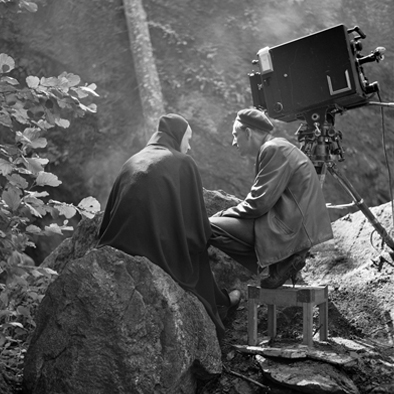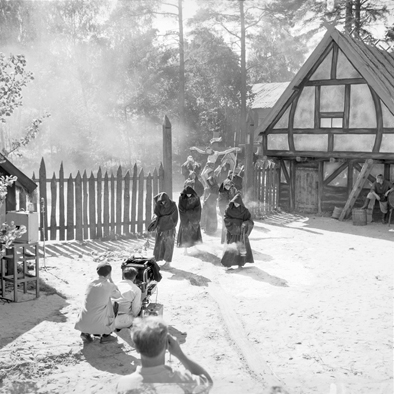From the Bergman Archives

Today marks what would have been the ninety-eighth birthday of Ingmar Bergman, one of cinema’s most essential artists, who ushered in a golden age of world cinema. Celebrate the Swedish auteur by revisiting a selection of Criterion essays, photo galleries, and videos that explore his iconic oeuvre.
- First, read John Simon on Bergman’s 1955 turn-of-the-century farce Smiles of a Summer Night, a comedy that emerged from a dark period in the director’s life. “What kind of comedy comes out of such a deep depression?” asks Simon. “Not one for belly laughs or helpless giggles, though those too may occur.” Yet, he notes, the fact that “in Smiles of a Summer Night you can always feel Bergman cannily in control never quite lets you forget that outside this playfulness there lurks, precariously held at bay, a reality that is no laughing matter.”
- Below, watch a video essay that explores Bergman’s compulsion to translate his unconscious into art.
- Enjoy filmmaker Catherine Breillat’s tribute to Bergman’s psychosexual early work Sawdust and Tinsel, excerpted and translated from the September 2003 issue of Cahiers du cinéma. “When I saw this film, I immediately decided To Be a filmmaker,” says Breillat. “Not out of love for the cinema. Out of necessity. In order to save myself.”
- Go behind the scenes of Bergman’s masterpieces The Seventh Seal and Wild Strawberries, both from 1957.







